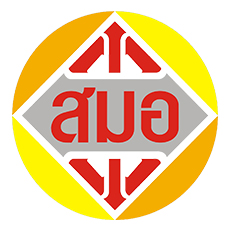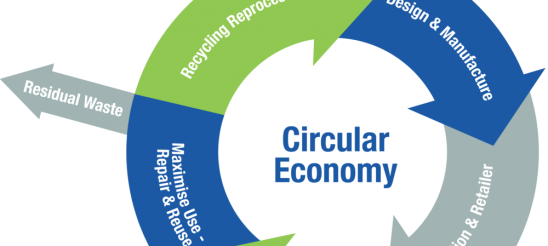Dear PASC Members
The Thai Industrial Standards Institute (TISI) seeks support for a Preliminary Work Item on Business Resilience Management for ISO/TC 292 proposed by TISI.
Currently, ISO/TC 292 N597 has already been circulated for voting. The voting period will end on September 7, 2018.
The main purpose of the proposal is to provide the industry sector with a management approach to enhance their resilient infrastructure to prevent, respond and quickly recover from any disruptive incidents. Please note that the PWI on Business Resilience Management is based on our proposal on a guidance on sufficiency economy for industries which was presented to PASC memebers at the 40th PASC Meeting in Vancouver, Canada.
TISI hopes that PASC members will consider supporting the proposal on to the ISO/TC 292 work programme as well as nominate experts to the PWI. TISI are available and happy to answer any stakeholder questions, or provide further information, to help facilitate a positive response as a result of national consultation. Please feel free to directly email Mr Ekanit Romyanon at [email protected] if you have any questions.
TISI would greatly appreciate positive support on this request.
Invitation to attend an International Workshop on Using ISO 31000 Guidance on Risk Management in Management Systems
There is a steady growth in the number of organizations, of all types and sizes that are using management systems. New ISO management system standards are also being developed to address specific aspects of an organization’s activities, products or services. In this context, the high level structure makes it easier for organizations to integrate different aspects within their management systems. However, a large proportion of the organizations using an ISO management system standard may have little knowledge of ISO 31000 guidance on risk management. As they will already be well acquainted with the structure of a management system, linking ISO 31000 with the high level structure will provide these organizations with an introduction to ISO 31000 and to how risk management relates to their management system.
Many small and medium-sized organizations worldwide have benefited from implementing a management system. However, many of them see a challenge in addressing an area as complex as risk management. This aim of the project is to:
- Enable businesses and organizations to benefit from using ISO 31000 guidance on risk management in their existing management systems;
- Promote ISO 31000 among management system standards users and promote the use of management systems to users of ISO 31000.
The guidance developed will be published as an International Workshop Agreement which will support these SMEs in starting to address risk management. An International Workshop Agreement is the outcome of open workshops of stakeholders on particular topics and can sometimes be a precursor to specific standards development.
The National Standards Body from the UK (BSI) has issued an invitation for stakeholders to participate in an international workshop on using ISO 31000 guidance on risk management in management systems’ on 15 October in London. With a second workshop scheduled for November. Ahead of the workshop, a preparatory meeting (online) will be organised on 6th August 2018.
Invitation to attend an International Workshop on Screening of Genetically Modified Organisms in Cotton and Textiles
The National Standards Body from the Netherlands has issued an invitation for stakeholders to participate in an international workshop on screening of Genetically Modified Organisms (GMOs) in cotton and textiles on 16 and 17 January in India. Ahead of the workshop, two preparatory meetings (online) will be organised in September and November.
The aim of the project is to develop an ISO protocol to screen specific (processed) cotton samples (for instance, seed, leaves, seed cotton, lint, yarn, fabric and garment; both dyed and natural) for the potential presence of known GMOs (both authorised, as well as non-authorised). This protocol would be published as an International Workshop Agreement is the outcome of open workshops of stakeholders on particular topics and can sometimes be a precursor to specific standards development.
This protocol would help to create clarity in the sector with regard to what can and cannot be tested for GMO presence in cotton and textiles.
To find out more about the Workshop and register your attendance, please contact your National Standards Body.
A New Field of Technical Activity – Circular Economy
ISO has received a New Field of Technical Activity Proposal from the French National Standards Body (AFNOR) to Form a new Technical Committee in the field of Circular Economy.
The scope of the new committee is proposed to be:
Standardization in the field of Circular economy to develop requirements, frameworks, guidance and supporting tools related to the implementation of circular economy projects.
The proposed deliverables will apply to any organization or group of organizations wishing to implement circular economy projects, such as commercial organizations, public services and not-for-profit organizations.
Excluded: specification of particular aspects of circular economy already covered by existing TCs, such as ecodesign, life cycle assessment in ISO/TC 207 Environmental management and sustainable procurement (ISO 20400: 2017 – Sustainable procurement — Guidance).
Note: the TC will contribute to sustainable development and especially to the implementation of the UN Sustainable Development Goals.
The proposed work programme for the field of activity consists of five components in the following order of priority:
- A Management System Standard for circular economy (Type A)
- A Standard on implementation guidance (Type B)
- A Standard for supporting tools
- Guidelines on the issues of circular economy projects
- A collection of examples of implementation of circular economy projects
National Standards Bodies are consulting with their stakeholders on this proposal. For more information, or to make a submission, please contact your National Standards Body by Tuesday 18 September 2018.



